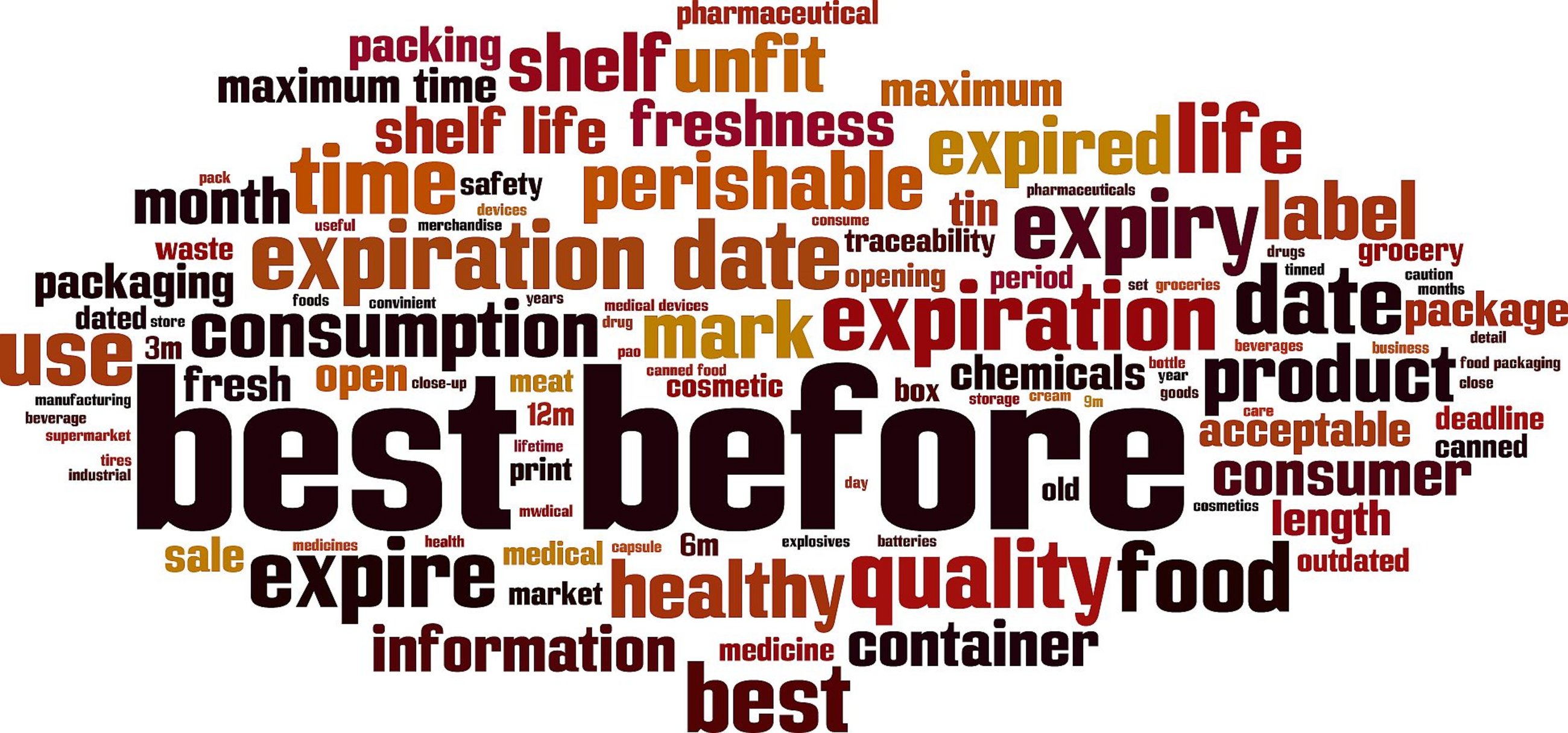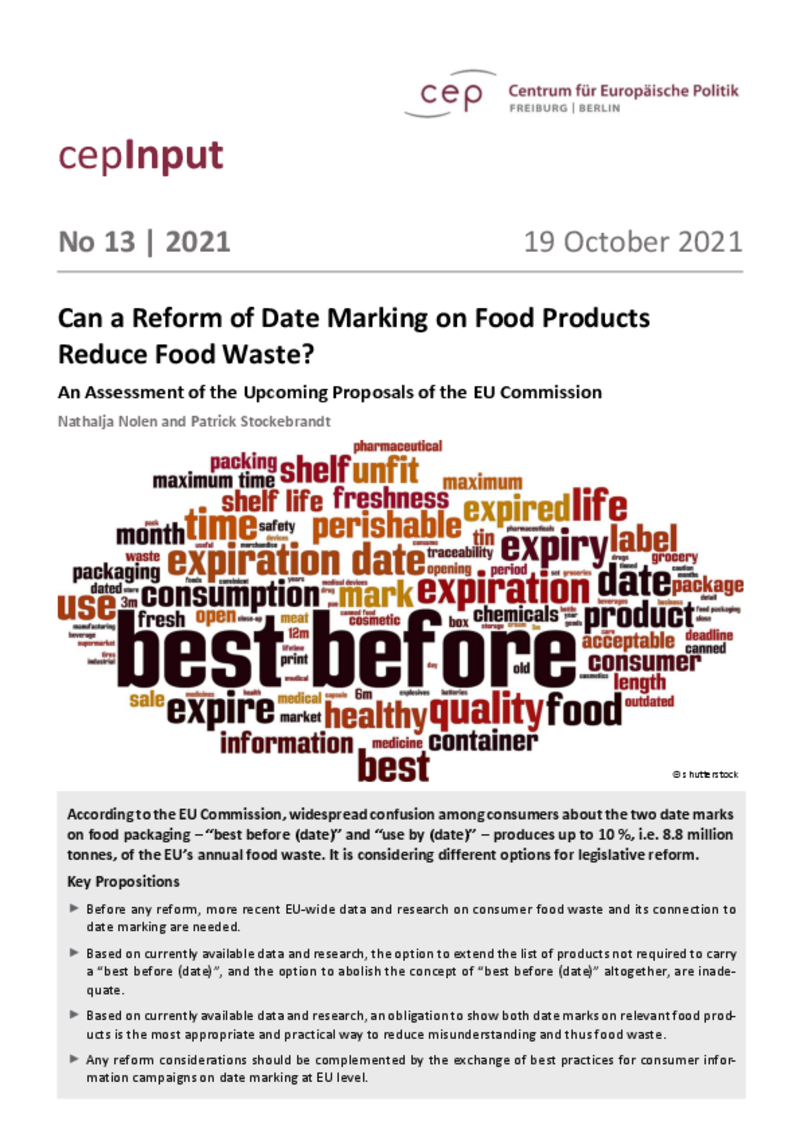
Consumer & Health
Can a Reform of Date Marking on Food Products Reduce Food Waste? (cepInput)
cepInput
The Centrum für Europäische Politik (cep) has examined these proposals. The core statement: "We advocate that both indications be put on the packaging," says cep lawyer Patrick Stockebrandt, who wrote the study with his Freiburg colleague Nathalja Nolen.
The Commission has so far offered three options: to abolish the “best before date” for certain products, perhaps even to do away with it altogether, or to improve labelling, which could include displaying both indications on food products as a matter of principle.
"We do not believe in abolishing the “best before date” altogether. On the contrary: we advocate making both current indications obligatory. This is the best way to avoid misunderstandings and food being thrown away too early," Stockebrandt emphasises. In this way, despite all the different habits in the Member States, consumers could clearly recognise until which deadline a food product can be safely consumed and act accordingly in a sustainable manner.
According to Stockebrandt, however, it is necessary to improve the data basis on food waste throughout the EU before a reform. He also calls for: "Any reform considerations should be complemented by the exchange of best practices for consumer information campaigns at EU level."
Download PDF
| Can a Reform of Date Marking on Food Products Reduce Food Waste? (cepInput) (publ. 10.19.2021) | 673 KB | Download | |
 | |||


